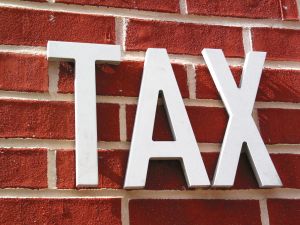Search
Tax Fraud: Criminal Tax Conviction For Failure to Pay Payroll Taxes Upheld
The criminal tax conviction of a New Jersey couple (the DeMuros) for failure to pay payroll taxes to the IRS was affirmed by the Third Circuit Court of Appeals, United States v. DeMuro (3d Cir. 2012). The willful failure to pay payroll taxes is a violation Internal Revenue Code (IRC) Section 7202, and is punishable by up to five years in prison. Of course the willful failure by a responsible officer to pay trust fund taxes is also a violation of IRC Section 6672, and will result in a trust fund recovery penalty (TFRP) being assessed against the responsible officers. Obviously the criminal tax conviction is much more serious than the assessment of the trust fund recovery penalty.

The DeMuros failed to pay trust fund taxes for their business of more than $546,000 over 21 calendar quarters from 2002 to 2008, resulting in a 21 count indictment. While that is a lot of money it is easy to see how a failing business could wind up in that situation since it amounts to about $25,000 per quarter, and was spread over a seven year period. A large sum, but not shocking, at least not to tax lawyers, and other tax professionals who see this type of underpayment on a semi-regular basis.
The DeMuros tried to argue that their failure to pay wasn’t willful, but to no avail. The IRS pointed to evidence that during the same time period the DeMuros spent over $5 million dollars from their personal and corporate bank accounts. Apparently several witnesses testified at trial about the DeMuros “luxury vacations, nice homes, and [Mrs. DeMuros] substantial home shopping network expenditures,” and the DeMuros argued on appeal that the admission of this evidence was “prejudicial.” The response from the Third Circuit was: “[w]hile we are sensitive to the effect that evidence of a defendant’s liberal spending habits can have on a jury, particularly in these lean economic times, the evidence admitted in this case, i.e. evidence of vacations, jewelry, cars and parties, was not so inflammatory as to carry a great risk of prejudice.”
Mrs. DeMuro argued at trial that she was not responsible for paying the payroll taxes. The IRS response was to show that that Mrs. DeMuro had the authority to fire employees and signatory authority over corporate bank accounts.
Interestingly the IRS also called as a witness the Enrolled Agent that represented the DeMuros before the IRS with regard to the payroll tax problems. The Enrolled Agent testified that he had reviewed two appeals that the DeMuros had filed, and that in his opinion they were meritless, and therefore should have been withdrawn. Advice which apparently the DeMuros didn’t follow, and the IRS relied on this as evidence of bad faith on the part of the DeMuros.
Continue Reading ›

 Tax Problem Attorney Blog
Tax Problem Attorney Blog








 In January I appeared on a panel with several other
In January I appeared on a panel with several other

